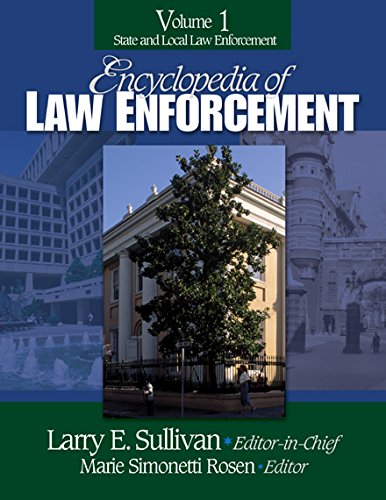Encyclopedia of Law Enforcement
Since 1995, Larry Sullivan has been the chief library administrator of the criminal justice library at John Jay, one of the senior colleges of The City University of New York. He directs the operations of the largest criminal justice library in the world; teaches graduate courses (e.g. Advanced Criminology, Punishment and Responsibility) and directs Ph.D. dissertations. He has published 5 books as an author, co-author or editor, including The Prison Reform Movement, (Twayne, 1990). He is on the advisory board for the Encyclopedia of Crime and Punishment and is about to sign with us to be the lead editor for a three volume Encyc. of Law Enforcement. ... Read more Read less
Although there is a plethora of studies on crime and punishment, law enforcement is a relatively new field of serious research. When courts, sentencing, prisons, jails, and other areas of the criminal justice system are studied, often the first point of entry into the system is through police and law enforcement agencies. Unfortunately, understanding of the important issues in law enforcement has little general literature to draw on. Currently available reference works on policing are narrowly focused and sorely out-of-date. To this end, a distinguished roster of authors, representing many years of knowledge and practice in the field, draw on the latest research and methods to delineate, describe, and analyze all areas of law enforcement. This three-volume Encyclopedia of Law Enforcement provides a comprehensive, critical and descriptive examination of all facets of law enforcement on the state and local, federal and national, and international stages. This work is a unique reference source that provides readers with informed discussions on the practice and theory of policing in an historical and contemporary framework. The volumes treat subjects that are particular to the area of state and local, federal and national, and international policing. Many of the themes and issues of policing cut across disciplinary borders, however, and several entries provide comparative information that places the subject in context. Key Features Three volumes cover State and Local, Federal, and International law enforcement More than 250 contributors have composed over 400 essays on all facets of law enforcement An editorial board of the leading scholars, researchers, and practitioners in the field of law enforcement Descriptions of United States Federal Agency law enforcement components Comprehensive and inclusive coverage, exploring concepts and social and legal patterns within the larger topical concern Global, multidisciplinary analysis Topics Covered Agencies, Associations, and Organizations Civilian/Private Involvement Communications Crime Statistics Culture/Media Drug Enforcement Federal Agencies/Organizations International Investigation, Techniques Investigation, Types of Investigative Commissions Law and Justice Legislation/Legal Issues Military Minority Issues Personnel Issues Police Conduct Police Procedure Policing Strategies Safety & Security Specialized Law Enforcement Agencies Tactics Terrorism Victims/Witnesses ... Read more Read less











